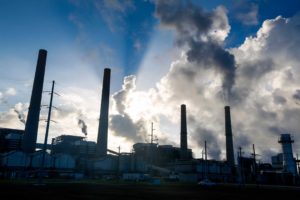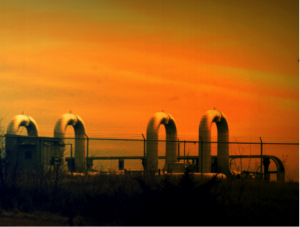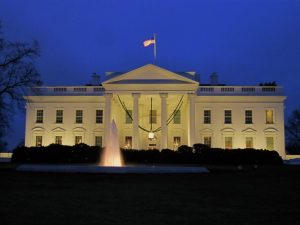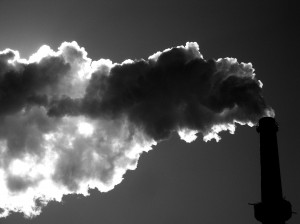11 item(s) were returned.
The New York City Council passed legislation in April 2019 to mandate that all existing buildings 25,000 square feet or larger must reduce their greenhouse gas emissions by 40% by 2030 and by 80% by 2050. This retrofit bill (Local Law 97) was part of a package of bills called the Climate Mobilization Act. There are 50,000 buildings in New York City that the law applies to, and they are responsible for about 30% of New York City’s total greenhouse gas emissions—”a big number for a small subset of buildings,” said Costa Constantinides, the New York City Council Member who… [more]
View InsightU.S. Senator, State of Wyoming
Chairman, Senate Committee on Environment and Public Works
Congress needs to help make American energy as clean as we can, as fast as we can, without raising costs on consumers. That’s why I, along with a bipartisan group of Senators, introduced the Utilizing Significant Emissions with Innovative Technologies Act, or simply, the USE IT Act. We held a Senate hearing on this bill several weeks ago. The USE IT Act would encourage the commercial use of man-made carbon dioxide emissions and support the use of carbon capture technology, including direct air capture. The legislation also expedites permitting for carbon dioxide pipelines in order to move the carbon dioxide… [more]
View InsightFormer Clean Energy Project Manager
Environmental Defense Fund
Earlier last month, the New York City Council introduced an energy efficiency bill package designed to make buildings more energy-efficient. Given that about 70 percent of greenhouse gas emissions in the City come from heating and cooling buildings, regulating how buildings manage energy is crucial to reaching Mayor Bill de Blasio’s goal of reducing citywide emissions 80 percent below 2005 levels by 2050. While these bills represent an important step in the right direction, there are opportunities to strengthen them so the intended reduction in pollution is more effective and long-lasting. For example, Int. 1644 proposes the establishment of a… [more]
View InsightPresident
The Stella Group, LTD
This month, reports surfaced that critical energy savings programs like ENERGY STAR could be defunded as part of the Trump Administration’s FY’18 budget. Last week, the President’s Budget Blueprint confirmed the rumors to be true. According to E&E news, a draft of the proposed budget cuts contained language stating “EPA should begin developing legislative options and associated groundwork for transferring ownership and implementation of ENERGY STAR to a non-governmental entity.” Today, millions of consumers and businesses choose ENERGY STAR—demonstrating that the program has earned credibility in the marketplace. When the Department of Energy and the Environmental Protection Agency developed the… [more]
View InsightOn the fourth day of his administration, President Trump signed multiple executive actions designed to advance the Keystone XL and Dakota Access pipelines, since related memos specifically invited project developers to re-submit applications for permits and approvals to begin or continue construction. Many view these decisions as a signal the president intends to fulfill campaign promises promoting the oil and gas industries, as described in his America First Energy Plan. Pipeline opponents, however, are already preparing for legal battles seeking to block these projects. Keystone XL proponents have consistently argued the pipeline will create thousands of good paying jobs while… [more]
View InsightAssociate Professor of Environmental Engineering
Rice University
President-elect Donald Trump has only vaguely defined his plans for energy policy, via his website and campaign statements and tweets. As a result, one can only speculate what changes to expect from Trump energy policies. Nevertheless, a recent report by S&P Global Platts aimed to predict how electricity will be generated under Trump energy policies. The analysis assumed Trump would allow subsidies for renewable energy to continue their scheduled scale down through 2020, and enact no new policies to support wind or solar. This is consistent with recent reporting indicating that Trump does not plan to act against renewable energy… [more]
View InsightMember
U.S. House of Representatives
Climate change is a threat to our environment and our economy, and we cannot afford the risk of inaction. With our free market economy, the best solution is a simple, transparent tax on carbon that unleashes the power of the market and enables America to lead the way toward a new, clean energy economy. Importantly, a carbon tax produces revenues that can be used to help American businesses and families. But there are many options for how to use these revenues. Critics of carbon taxes frequently cite slower economic growth, increasing taxes on the poor, and hurting coal workers as… [more]
View InsightCo-Executive Director
The Institute for Carbon Removal Law and Policy, American University
The focus of the United Nations Framework Convention on Climate Change (UNFCCC) originally was the reduction of greenhouse gas emissions, as well as emissions associated with land-use change and forestry. However, by the 2000s scientists and policymakers realized that emissions targets were too low to avoid serious negative impacts, necessitating the development of adaptation responses as a complement to mitigation. In the past few years, it has become clear that historical emissions have “locked in” a certain level of climatic change, making some serious impacts unavoidable. Moreover, the feckless response of the world in arresting emissions makes even graver unavoidable… [more]
View InsightThe U.S. Environmental Protection Agency has proposed amendments to Greenhouse Gas Reporting Program (GHGRP) requirements in an attempt to address industry concerns over revealing confidential business data. The GHGRP collects greenhouse gas data from forty-one source categories to “help us better understand where greenhouse gas emissions are coming from and improve our ability to make informed policy, business, and regulatory decisions,” according to the EPA. Calculating emissions within many industries involves equations that require detailed data, much of it considered confidential by the affected industry. Under current rules, such data would be categorized as “inputs to emission equations” and have… [more]
View InsightVisiting Fellow
Hudson Institute
This discussion was co-authored by J. Eric Bickel, Assistant Professor, The University of Texas at Austin. Measures to reduce greenhouse gas (GHG) emissions have dominated public discourse about responses to man-made climate change. However, major institutional and political hurdles dim the prospects for controlling emissions. Solar Radiation Management (SRM) appears to promise at least some capacity to offset manmade warming. SRM would seek to manage physical processes that reflect sunlight back into space. For example, researchers have envisioned adding to the layer of aerosols already present in the lower stratosphere. All else remaining equal, global mean temperatures would fall even… [more]
View Insight








